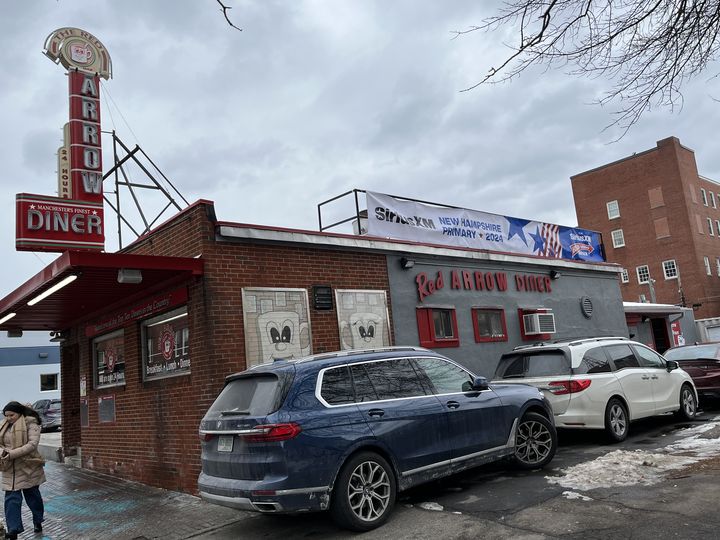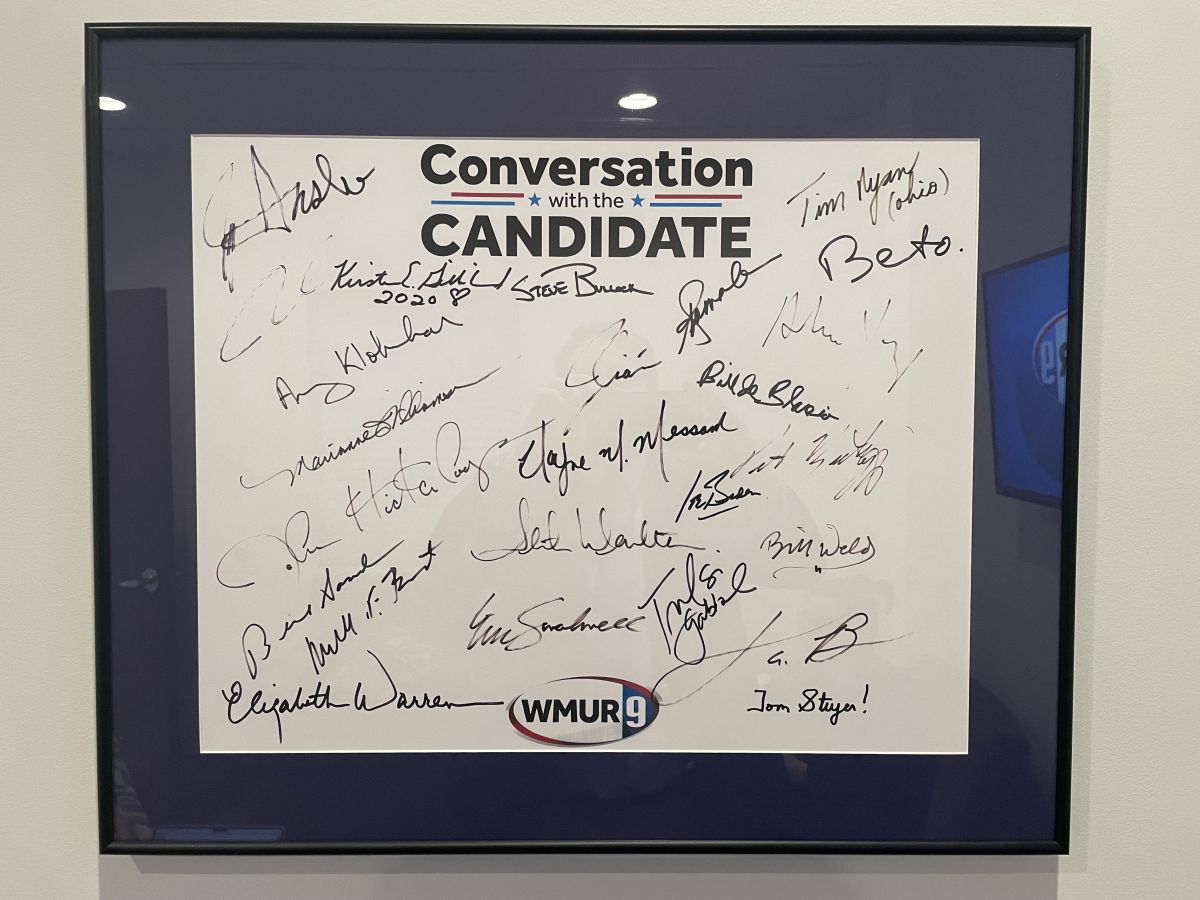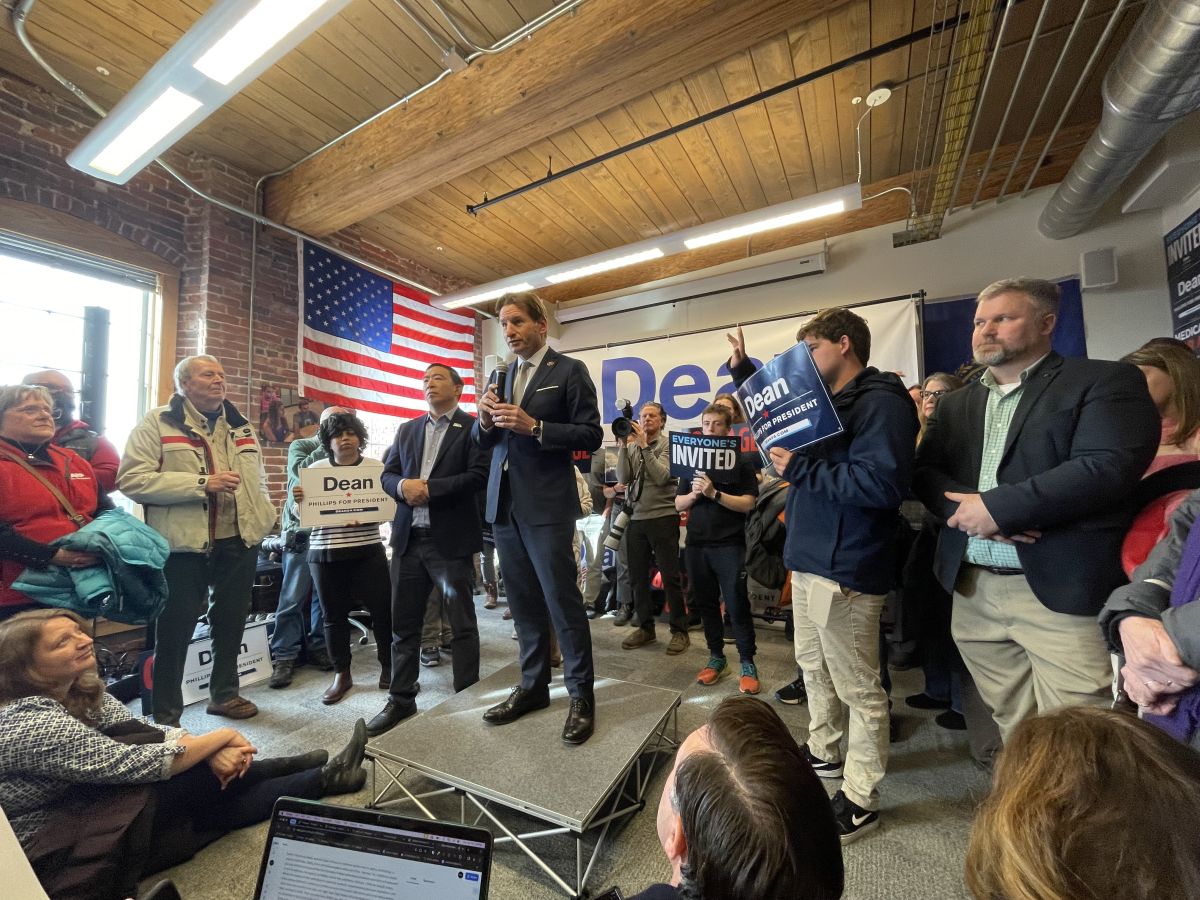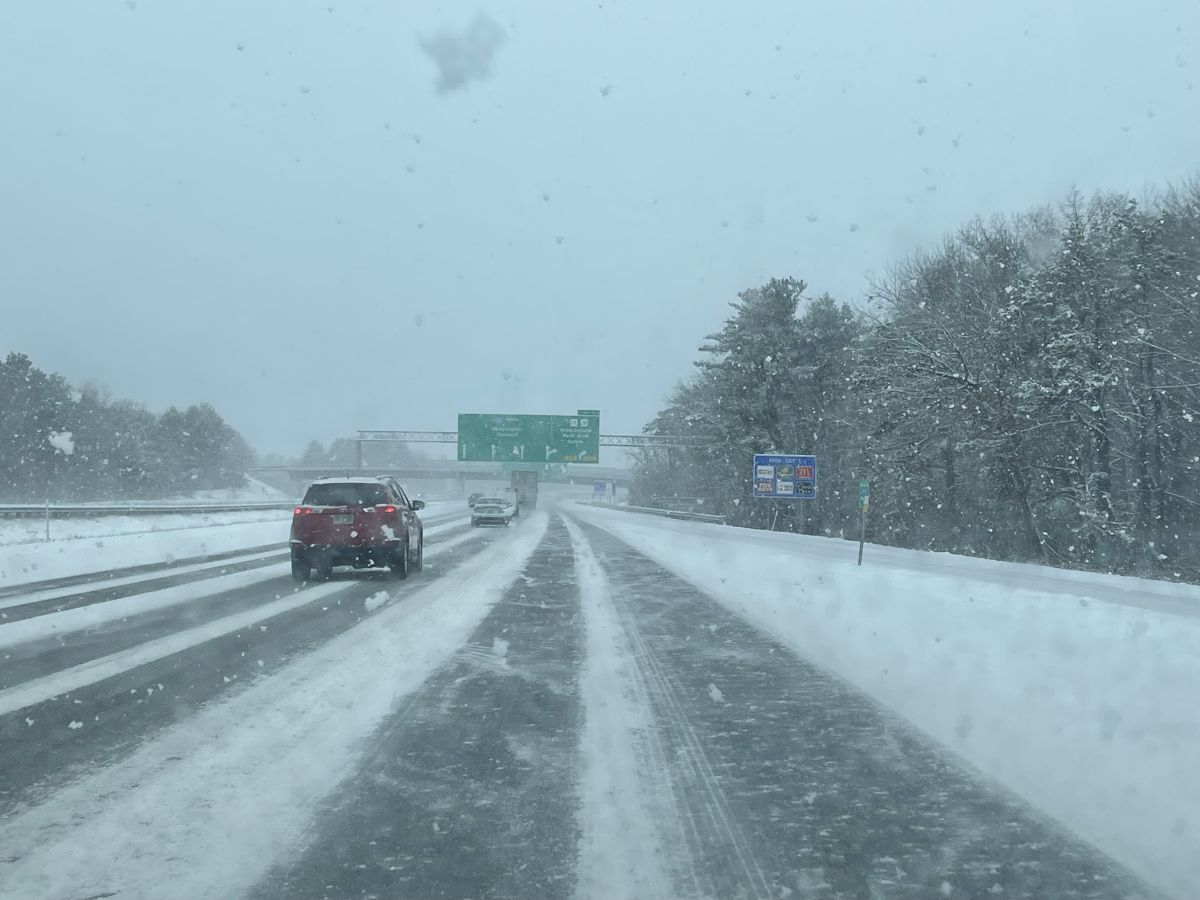Get PolitiFact in your inbox.
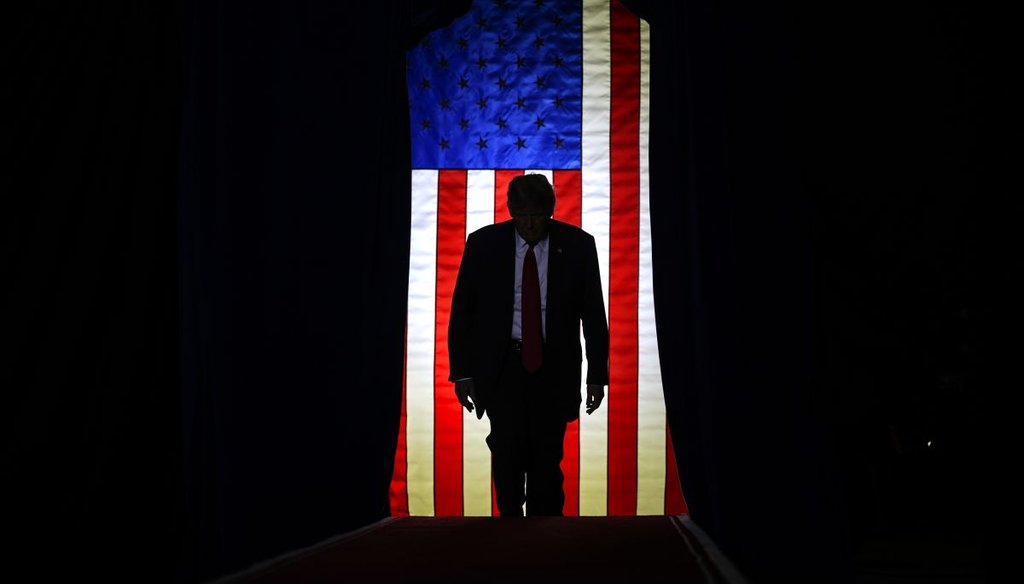
Former President Donald Trump arrives for a campaign event in Manchester, N.H., on Jan. 20, 2024. (AP)
MANCHESTER, N.H. — On the surface, this year’s primary has proceeded as usual.
Candidates spoke to packed rooms, with the cleverest booking spaces just smaller than the expected turnout to stoke the excitement. Presidential candidates dropped by the Red Arrow Diner here, including former President Donald Trump and former United Nations Ambassador Nikki Haley. The media descended on Dixville Notch in the far northern part of the state to cover midnight voting. (Haley swept it, winning all six votes.) And local TV stations played a seemingly endless loop of attack ads.
Yet the run-up to the Jan. 23 voting also offered signs that New Hampshire is slipping from its long-standing position as king of the presidential primaries. During three reporting trips to the state — in October, December and January — PolitiFact was not the only media outlet to notice:
-
The Republican front-runner, Trump, came to the state only sporadically, mainly for big rallies and largely eschewing the politicking New Hampshire is famous for, while skipping events that every other candidate attended, such as the First in the Nation Summit in October.
-
Haley, fresh off a disappointing third-place finish in Iowa, rejected a long-planned televised New Hampshire debate, even though the state’s primary was considered a must-win for her.
-
After taking heat for her answer to a question on the Civil War, Haley went for several days without answering questions from New Hampshire voters, who are known for their political knowledge and inquisitiveness.
-
Immediately after the Iowa caucuses, Florida Gov. Ron DeSantis bypassed New Hampshire and flew to South Carolina. He ended up holding only a few events in New Hampshire before dropping out of the presidential race two days before the primary.
-
On the Democratic side, the national party, at the urging of President Joe Biden, took away New Hampshire’s first-in-the-nation status for his party, handing it instead to South Carolina. This meant New Hampshire, required by law to have the nation’s first Democratic primary, did so Jan. 23, but it did not distribute Democratic delegates. Because of the shake-up, Biden never campaigned in the state, and backers were left to promote a write-in campaign.
-
By Jan. 21, two days before the primary, the GOP field had narrowed to only two major candidates, far fewer than in the past. In the last contested GOP primary in 2016, five candidates won at least double-digit-percentage shares of the vote, and in 2020, five Democrats secured at least 8% of the vote.
"Fewer candidates, fewer events, fewer opportunities for regular citizens to engage with candidates about their real lives — I'm not nostalgic about the past, but I do think the primary as we knew it, that served the nation well for decades, has changed," said Fergus Cullen, a former state Republican Party chairman and now a Dover city councilor. "More than ever (this year), New Hampshire was just a set and voters were extras."
Kathleen Sullivan, a longtime Democratic activist in Manchester, agreed. "It’s like watching bowling pins fall. There is not that much excitement and energy." St. Anselm College, which was supposed to host a debate until Haley canceled, "was as dead as a doornail" over the final weekend before voting, Sullivan said.
Keri Thompson, who teaches at Emerson College and regularly travels to early caucus and primary states with her students, called the vibe this year in New Hampshire "disappointing."
"I’ve been in New Hampshire with students the last few election cycles and it’s been a lot more exciting," Thompson said at a Haley rally at a high school in Exeter. "It feels very tame."
The Red Arrow Diner in Manchester, New Hampshire, has been a traditional stop for politicians to meet voters before the state’s primary. (Matthew Crowley/PolitiFact)
New Hampshire voters noticed, too.
"I blame Trump for this," said Robert McCowen of Hampton Falls after attending a Haley rally in Exeter. "Trump should have been in on the first debate and going on. Defend your record. To quote — I think it was (former GOP primary candidate) Chris Christie — he is a coward. He will not back up what he did."
At an elementary school voting site in Manchester, voter Scott Gonzales said that although he cast his ballot for Biden in 2020, he was disappointed that the Republican candidates did not debate. A planned Jan. 18 debate hosted by ABC and WMUR, the state’s only local TV station and a PolitiFact partner, was scrapped when Haley said she would debate only Trump or Biden. A planned Jan. 21 CNN debate was also canceled.
"They should be debating," Gonzales said. "If you want to get people’s vote, you should see the differences they have when they talk to each other."
A relic of the 2020 New Hampshire primary in WMUR-TV's green room. The 2024 version will be more sparse. (Louis Jacobson/PolitiFact)
Snubbing WMUR was "a big deal," said Michael Graham, managing editor of New Hampshire Journal, a website that covers the primary extensively.
"As the only New Hampshire TV station, it's viewed as the community bulletin board," Graham said. "Plenty of people have the attitude that if it didn't happen on WMUR, it didn't happen."
Other media outlets were left in the cold, too, often facing challenges getting into public events for Haley and other candidates, The Boston Globe reported.
PolitiFact attended various candidates’ appearances in Exeter, Hampton, Henniker, Manchester, Peterborough and Rochester in the week leading up to the primary, but our attempts to attend Trump rallies in Atkinson, Concord, Laconia, Manchester and Rochester were rejected. (We fact-checked Trump anyway, thanks to livestreams.)
Democratic presidential candidate Dean Phillips addresses voters at an event in Manchester, N.H., on Jan. 18, 2024. (Louis Jacobson/PolitiFact)
On the Democratic side, Minnesota Rep. Dean Phillips — Biden’s long-shot challenger in the Jan. 23 nondelegate-awarding primary — was an unexpected beneficiary of the Republican primary’s dwindling hold on the state. Phillips "drew a bit of media attention at his campaign events this week because many national reporters were milling around Manchester with nothing else to do," Semafor wrote. (We were among the outlets that covered Phillips.)
The longer-term question for Democrats is whether the party will give New Hampshire prominence again. Along with the first caucus state, Iowa, New Hampshire has declined in relevance for many Democratic officials because of demographics: Both states have a far greater share of white residents than the nation as a whole, and even more so compared with the Democratic Party’s electorate.
A few inches of snow didn't stop New Hampshire residents, but candidates ignoring norms for the First in the Nation primary state irked many voters. (Louis Jacobson/PolitiFact)
Fans of the old-school New Hampshire primary look with hope to 2028, when the presidential contest won’t include any incumbents.
Early 2028 Democratic contenders, including Rep. Ro Khanna of California and Pennsylvania Gov. Josh Shapiro, have made it a point to visit the state, even five years in advance, said Christopher Galdieri, a St. Anselm College political scientist.
PolitiFact Copy Chief Matthew Crowley and Staff Writer Maria Ramirez Uribe contributed to this article.
RELATED: Fake Joe Biden robocall in New Hampshire tells Democrats not to vote in the primary election
RELATED: Trump’s misleading claim that Haley is seeking Democrats to ‘infiltrate’ New Hampshire’s GOP primary
RELATED: Fact-checking Haley’s New Hampshire claims on fentanyl, education, Trump’s stance on retirement age
Our Sources
Interviews with voters at Nikki Haley rally in Exeter, New Hampshire, Jan. 21, 2024
Interviews with voters at Webster Elementary School in Manchester, New Hampshire, Jan. 23, 2024
Interview with Kathleen Sullivan, former chair of New Hampshire Democratic Party and treasurer of Granite for America, Jan. 22, 2024
Interview with Keri Thompson, senior lecturer at Emerson College, Jan. 21, 2024
Email interview with Fergus Cullen, former state Republican party chairman, Jan. 21, 2024
Email interview with Christopher Galdieri, St. Anselm College political scientist, Jan. 22, 2024
Email interview with Michael Graham, managing editor of New Hampshire Journal, Jan. 22, 2024
Semafor, "Inside the collapsing U.S. political-media-industrial-complex," Jan. 21, 2024
The Atlantic, "First in the Nation—And Last?" Jan. 23, 2024
The Boston Globe, "Journalists on the ground in New Hampshire report some challenges getting into the room with Trump, Haley," Jan. 22, 2024
The Hill, "DeSantis zeroes in on South Carolina to bolster campaign," Jan. 20, 2024
Red Arrow Diner, X posts, Jan. 22, 2024
Other sources linked in article


